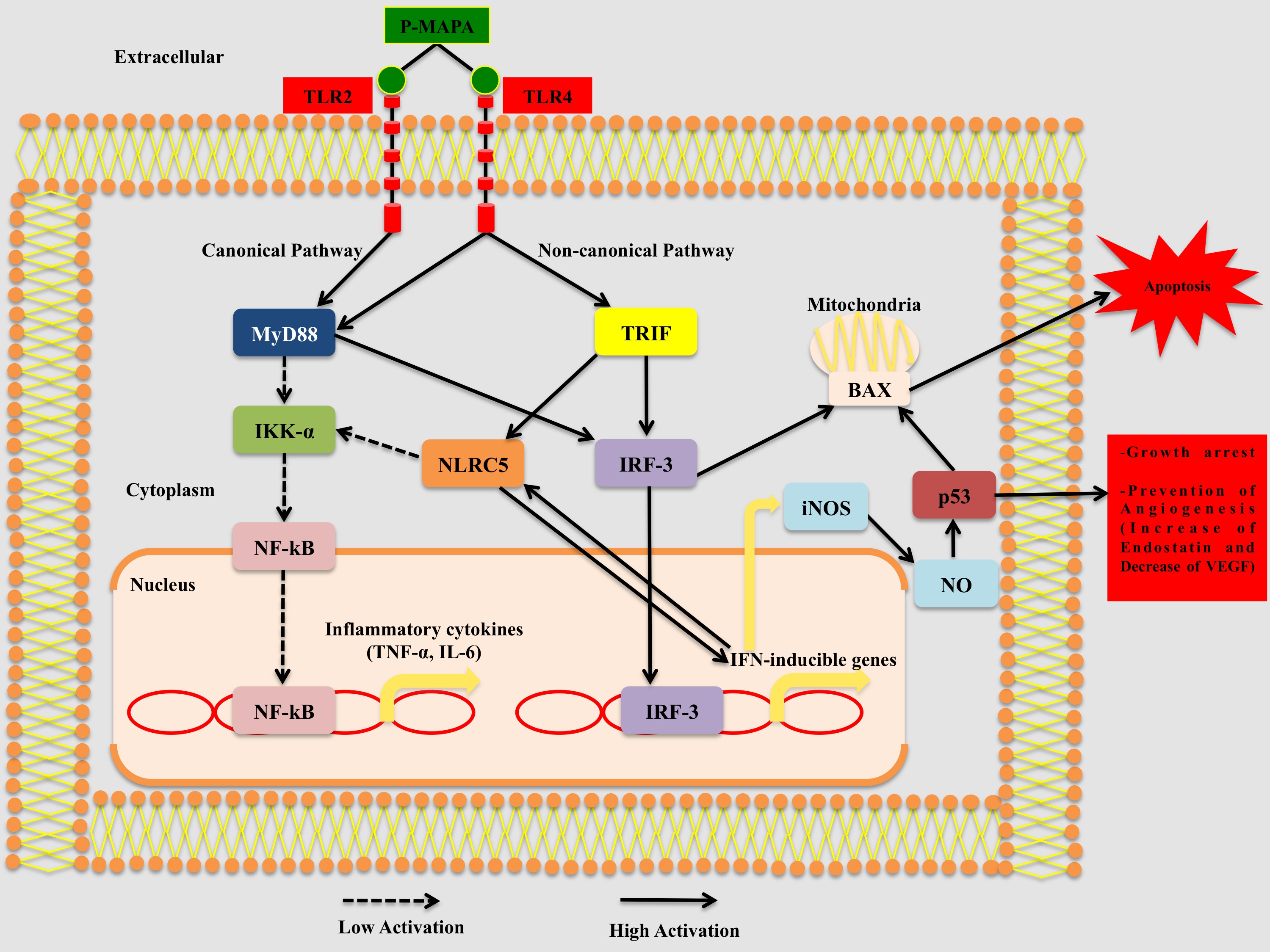

 Home |
Site Map |
Add to Favorites Link |
Send page to a Friend |
Contact us
Home |
Site Map |
Add to Favorites Link |
Send page to a Friend |
Contact us

|

 Home |
Site Map |
Add to Favorites Link |
Send page to a Friend |
Contact us
Home |
Site Map |
Add to Favorites Link |
Send page to a Friend |
Contact us
|
| About Us | Products | Research and Development | Publications and Press | Clinical Trials | Latest News | Contact us |
 |

07/07/2016

Research article: Increased toll-like receptors and p53 levels regulate apoptosis and angiogenesis in non-muscle invasive bladder cancer: mechanism of action of P-MAPA biological response modifier
Abstract
The new modalities for treating patients with non-muscle invasive bladder cancer (NMIBC) for whom BCG (Bacillus Calmette-Guerin) has failed or is contraindicated are recently increasing due to the development of new drugs. Although agents like mitomycin C and BCG are routinely used, there is a need for more potent and/or less-toxic agents.
In this scenario, a new perspective is represented by P-MAPA (Protein Aggregate Magnesium-Ammonium Phospholinoleate-Palmitoleate Anhydride), developed by Farmabrasilis (non-profit research network).
This study detailed and characterized the mechanisms of action of P-MAPA based on activation of mediators of Toll-like Receptors (TLRs) 2 and 4 signaling pathways and p53 in regulating angiogenesis and apoptosis in an animal model of NMIBC, as well as, compared these mechanisms with BCG treatment.
Our results demonstrated the activation of the immune system by BCG (MyD88-dependent pathway) resulted in increased inflammatory cytokines. However, P-MAPA intravesical immunotherapy led to distinct activation of TLRs 2 and 4-mediated innate immune system, resulting in increased interferons signaling pathway (TRIF-dependent pathway), which was more effective in the NMIBC treatment.
Interferon signaling pathway activation induced by P-MAPA led to increase of iNOS protein levels, resulting in apoptosis and histopathological recovery.
Additionally, P-MAPA immunotherapy increased wild-type p53 protein levels. The increased wild-type p53 protein levels were fundamental to NO-induced apoptosis and the up-regulation of BAX.
Furthermore, interferon signaling pathway induction and increased p53 protein levels by P-MAPA led to important antitumor effects, not only suppressing abnormal cell proliferation, but also by preventing continuous expansion of tumor mass through suppression of angiogenesis, which was characterized by decreased VEGF and increased endostatin protein levels.
Thus, P-MAPA immunotherapy could be considered an important therapeutic strategy for NMIBC, as well as, opens a new perspective for treatment of patients that are refractory or resistant to BCG intravesical therapy.



|